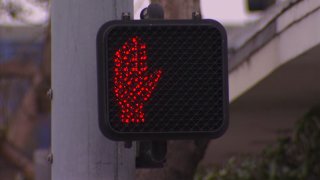
A federal appeals court has ruled that the city of Chicago discriminated against the visually impaired by failing to make signalized crosswalks accessible for those who are either blind or have low vision.
Only one half of one percent of signalized intersections in Chicago provide accessible pedestrian signals for the blind, according to Disability Rights Advocates, a non-profit that filed suit against the city in 2019 along with three individuals who have vision-related disabilities.
"As a result, blind and low vision pedestrians are put in danger of crossing against the light, in the path of cars, every time they cross a street without APS," the DRA stated in a news release. "Having APS installed at these intersections means that Plaintiffs who for years have resorted to taking circuitous routes to avoid particularly unsafe intersections, or who have avoided walking altogether, will have newfound security accessing a fundamental part of Chicago civic life: walking city streets."
According to the ruling, which was issued March 31 in U.S. District Court for the Northern District of Illinois, the city must install crosswalks with audible or vibrating cues when constructing or modernizing an intersection's pedestrian signals.
Feeling out of the loop? We'll catch you up on the Chicago news you need to know. Sign up for the weekly Chicago Catch-Up newsletter here.
Jelena Kolic, senior staff attorney at Disability Rights Advocates, said the ruling will allow individuals who are blind to experience the walkability Chicago is known for.
The plaintiffs didn't see monetary damages; they just sought to ensure accessibility for those who are blind and have low vision.
“This decision sends a message to cities and towns across the state and around the country that they can no longer deny pedestrians who are blind full and equal access to signalized intersections,” plaintiff Ray Campbell said in a news release.

